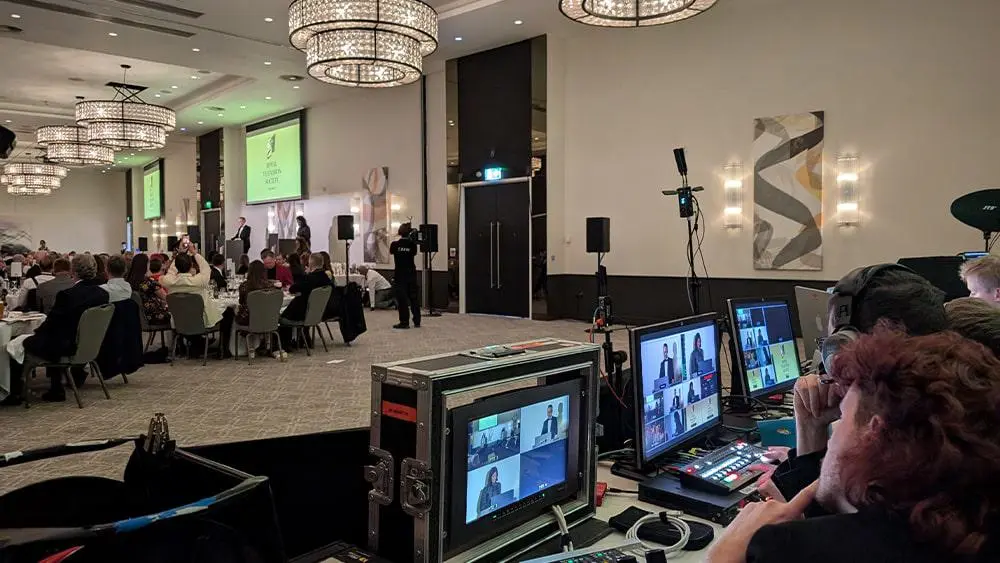
TV production students shine on the big stage
A talented team of BA (Hons) Television Production students successfully live-streamed the RTS Southern Awards.
15 April 2025
27 October 2024
For decades, Joseph Campbell’s hero’s journey has reigned as the dominant narrative structure in popular culture. Dr Roy Hanney, Associate Professor of Media, explores its relevance in contemporary storytelling.
From Hollywood blockbusters to self-help gurus, this model of storytelling—where a lone protagonist overcomes trials and tribulations to return victorious—has become the ultimate blueprint for understanding our lives and the world. But is it really the universal truth it’s claimed to be?
The answer, increasingly, appears to be no.
Joseph Campbell’s hero’s journey, as compelling as it might seem, is a product of its time and cultural context. Developed by cherry-picking myths from around the world and presenting them through a Western, psychoanalytic lens, Campbell claimed to have distilled the "one story" that unites humanity. Yet the scholarship underpinning his theory is surprisingly weak - filled with generalisations and a lack of critical engagement with the cultures he claimed to represent. More importantly, Campbell’s framework embodies a Eurocentric, phallocentric worldview that celebrates individualism and trials of strength, while downplaying or ignoring the richness of other ways of storytelling.
As a result, the hero’s journey is far from being a truly universal framework. It is instead a cultural artifact—a "Hollywood McMyth," to borrow a phrase—one that has dominated our imagination and sidelined the multiplicity of narratives that better reflect the diversity of human experiences.
At Southampton Solent University, we’ve recently tackled this issue head-on through a one-day symposium on the evolution of story, which inspired the publication of a special journal issue in Media Practice and Education.
The goal was to unravel the myth of the hero’s journey and explore alternative paradigms that embrace community, inclusivity, and non-linear storytelling. Contributions from academics and practitioners called for a shift away from this outdated model, towards one that recognizes the complexities of global challenges and diverse human experiences. In a world facing pressing issues that demand collective action, the lone hero myth seems ill-suited and limiting.
The hero’s journey tells a very particular kind of story—one in which a singular hero embarks on an adventure, faces tests of courage, and emerges victorious. But what if we told stories of shared journeys, stories in which community, companionship, and cooperation are the true heroes? What if we celebrated narratives that centre around nurturing, empathy, and coexistence rather than conflict and dominance?
In contemporary storytelling, we’re beginning to see signs of this shift. The rise of immersive, participatory experiences in virtual and augmented reality, as well as new forms of collective and non-linear narratives, challenge the singular hero model. These stories allow audiences to step into dynamic roles, to become part of a collective journey rather than just watch a lone hero from afar.
At Solent University, we believe in the power of storytelling to shape our worldviews and values. By promoting diverse and inclusive storytelling practices, we aim to support narratives that are not only reflective of but also nurturing to the multiplicity of voices that make up our society. The hero’s journey may have its place, but it’s time to open up the stage to other stories—ones that better represent the shared challenges and opportunities of our time.
So, the next time you find yourself watching a familiar Hollywood blockbuster or reading a story about a lone hero, ask yourself: whose voice is missing? What other stories are waiting to be told?
It’s time to dare to think differently. The world is richer when we embrace all the stories it has to offer.
Dr Roy Hanney is an Associate Professor of Media Practice. You can find out more about this work and research on his academic profile.
